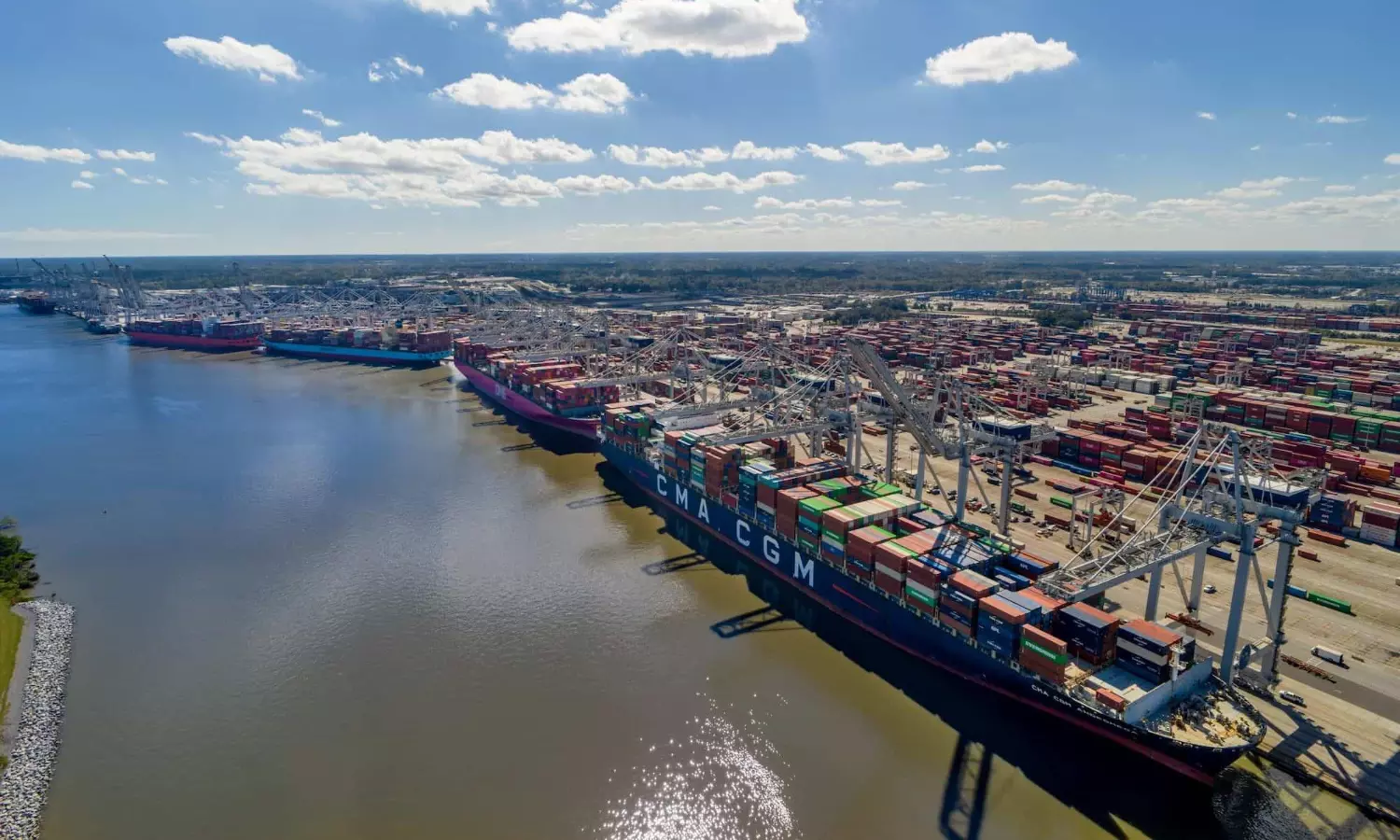U.S. port strike continues, focus shifts to managing capacities
USMX says talks cannot happen on pre-conditions even as Biden backs workers; all eyes on how long the strike will last.

Port of Savannah
With the strike by the International Longshoremen's Association (ILA) at the U.S. East Ports continuing and with the on-going speculation as to how long this might last dominating many headlines, Sea-Intelligence analyses the impact that the length of the strike will have on the global fleet and the weekly capacity in TEU terms.
"At present, the shipping lines are pushing a full contingent of capacity from 62 deep sea services, which, unless there is a very rapid and unexpected resolution to the industrial dispute, will have to wait at anchorage at the first port of call on their discharge schedule. In addition to that, there are vessels which have already commenced their discharge rotation and will have to wait at their second, third or even fourth port of call depending on how much of their schedule they have already completed prior to the strike taking place," says the update.
Figure 1 represents both the vessels that are already stuck on the U.S. East Coast as well as the additional vessels that are arriving this week on the U.S. East Coast.
"This chart compares the amount of capacity lost per week and the cumulative share of the global fleet that these weekly capacity losses represent."
In the first week, the capacity loss is at its highest (around 775,000 TEU) due to the vessels already stuck on the U.S. East Coast plus the incoming vessels with the subsequent three weeks showing a loss of around 443,000 TEU as only the "new" arrivals are being counted.
"Should the strike last four weeks, causing almost seven percent of the global fleet to be tied up along the U.S. East Coast, the overall impact on the supply and demand equation will be very significant," the update added.
U.S. President Joe Biden's comments surely ups the pressure on United States Maritime Alliance (USMX) but does not necessarily help settle the conflict, says Niels Rasmussen, Chief Shipping Analyst, Bimco. "Beyond disagreements over salary increases, different stands regarding port automation will also be difficult to bridge."
USMX, on its part, says: "We cannot agree to preconditions to return to bargaining –but we remain committed to bargaining in good faith to address the ILA’s demands and USMX’s concerns.
For the ships already enroute to the U.S., the only viable alternative ports appears to be Halifax in Canada, which, however, will only be able to cater to a fraction of the ships and cargo, Rasmussen added. "Cargo not yet shipped could be diverted to U.S. West Coast ports but they cannot accommodate much of the cargo without experiencing congestion and causing delays to ships."


